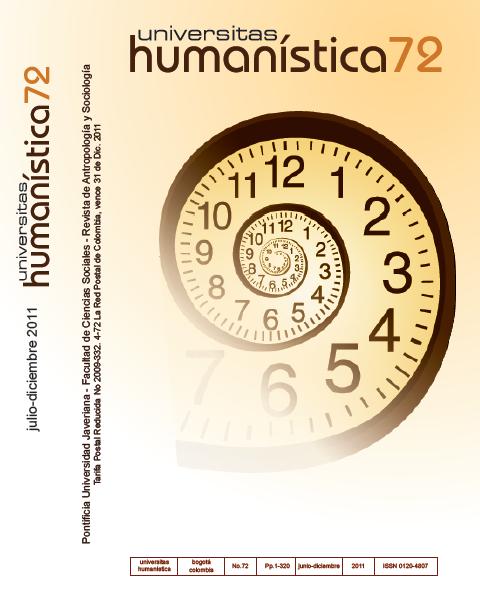Memory and history of violence in San Carlos and Apartadó
##plugins.themes.bootstrap3.article.details##
Abstract
This paper inquires into the production of memories on violent events in two Antioquia municipalities, which from the 80’s have shown alarming violence indicators. Thus, in the municipality of San Carlos violent events memories are framed within a context of a catholic society having homogeneous economic conditions, elites historically pertaining to the Conservative party, accelerated development processes, and living under hegemonic armed rule. In this scenario a certain consensus is achieved in the narrative of violence, aiming at dignifying victims and highlighting the high costs armed confrontation entails. In the municipality of Apartadó, violence memory is framed within a pluri-ethnic, lay and marginal society, immerse in accelerated development processes and unstable armed rule. There, a split memory is produced, featuring political identities routinizing and eventually justifying violent events. In the face of these cases, an attempt is made to keep the reflection on what kind of memories are required to stop reproducing war?
Keywords
Memória da violência, Apartadó, San Carlos, produção da memória, memória e poderMemory of violence, Apartadó, San Carlos, production of memory, memory and powermemoria colectiva, juicios políticos, Colombia, conflicto, Violencia años cincuenta
References
How to Cite
Restrepo, G. I. (2009). Memory and history of violence in San Carlos and Apartadó. Universitas Humanística, 72(72). Retrieved from https://revistas.javeriana.edu.co/index.php/univhumanistica/article/view/2151
Issue
Section
Horizontes


